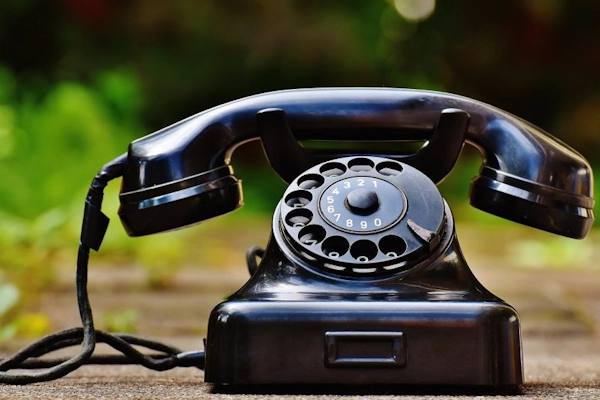Blog
Resources, advice and articles related to business telephony
Stay up to date with our latest feature launches, and explore tips and best practices straight from the experts.
IP phone, which one to choose?

There are many IP phones on the market. Most of them are compatible with each other, but not all offer the same functions and options. So, it’s easy to get the wrong model if you don’t take the time to understand the nuances and assess your needs.
IP Standards
All IP phones today use Internet Protocol (IP) technology to make calls. Some use compatible protocols, others use proprietary protocols.
It goes without saying that it is desirable to choose a phone that uses a layer of standards-compliant protocols so that they can be supported by most VoIP providers.
The protocols sought are SIP (Signaling Protocol) and RTP (Media Exchange Protocol). If you are considering adding a layer of security, you must verify that the phone supports SIPS and SRTP (S for security).
Interoperability
In addition to IP protocols, phones use voice encoding and decoding algorithms (Codec). Fortunately, all “today’s” phones support popular encoding algorithms such as G.711, G.729, and G.722.
You should also check whether the phone can be managed remotely or not. If a phone cannot be managed remotely, it will be laborious to set up and require the assistance of a trained VoIP technician. Check with your provider if the phone you are considering is properly supported and if your provider can auto-configure it.
PoE Phone
All phones require a power supply, however, not all offer the same flexibility. It is always desirable to deploy your phones on a Power Over Ethernet (PoE – which provides power over the Ethernet cable) to eliminate the AC adapter and make the desk less cluttered with cables.
However, not all networks are always equipped with a PoE network switch, in which case you will need to power your phone with an AC adapter. Check if an AC adapter is supplied with the phone and / or if it supports PoE.
LAN or Wi-Fi network
Your phone must obviously be connected to your network and to the Internet. As with a laptop computer, you can connect it via a LAN connector, or, for some models that support it, via your Wi-Fi network.
Although we recommend using a wired (LAN) link, which is more reliable than wireless, the Wi-Fi option can be interesting for people who work from home.
Features
In addition to the technical elements listed above, you will have to choose the screen size, whether this screen is color or two-tones and the number of programmable buttons.
Also, you will have to consider whether you want to use a headset or an earpiece. The options are Bluetooth (wireless), USB or wired (via a standard RJ-9 connector). But be careful, not all headsets are compatible with all IP phones and do not offer the same levels of functionality. Ask your provider for advice.
Contact an S2T specialist today for advice on your next ip phone.
IP Standards
All IP phones today use Internet Protocol (IP) technology to make calls. Some use compatible protocols, others use proprietary protocols.
It goes without saying that it is desirable to choose a phone that uses a layer of standards-compliant protocols so that they can be supported by most VoIP providers.
The protocols sought are SIP (Signaling Protocol) and RTP (Media Exchange Protocol). If you are considering adding a layer of security, you must verify that the phone supports SIPS and SRTP (S for security).
Interoperability
In addition to IP protocols, phones use voice encoding and decoding algorithms (Codec). Fortunately, all “today’s” phones support popular encoding algorithms such as G.711, G.729, and G.722.
You should also check whether the phone can be managed remotely or not. If a phone cannot be managed remotely, it will be laborious to set up and require the assistance of a trained VoIP technician. Check with your provider if the phone you are considering is properly supported and if your provider can auto-configure it.
PoE Phone
All phones require a power supply, however, not all offer the same flexibility. It is always desirable to deploy your phones on a Power Over Ethernet (PoE – which provides power over the Ethernet cable) to eliminate the AC adapter and make the desk less cluttered with cables.
However, not all networks are always equipped with a PoE network switch, in which case you will need to power your phone with an AC adapter. Check if an AC adapter is supplied with the phone and / or if it supports PoE.
LAN or Wi-Fi network
Your phone must obviously be connected to your network and to the Internet. As with a laptop computer, you can connect it via a LAN connector, or, for some models that support it, via your Wi-Fi network.
Although we recommend using a wired (LAN) link, which is more reliable than wireless, the Wi-Fi option can be interesting for people who work from home.
Features
In addition to the technical elements listed above, you will have to choose the screen size, whether this screen is color or two-tones and the number of programmable buttons.
Also, you will have to consider whether you want to use a headset or an earpiece. The options are Bluetooth (wireless), USB or wired (via a standard RJ-9 connector). But be careful, not all headsets are compatible with all IP phones and do not offer the same levels of functionality. Ask your provider for advice.
Contact an S2T specialist today for advice on your next ip phone.
